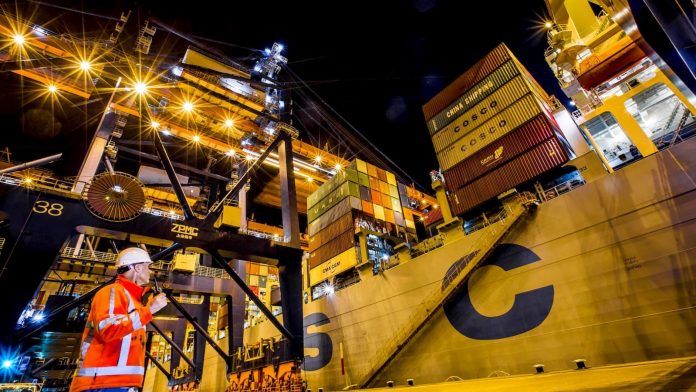Both Maersk and MSC have been involved in the International Maritime Organization (IMO)’s latest just-in-time (JIT) desktop trials, which look to streamline port operations, saving fuel and preventing unnecessary pollution.
The latest trials, conducted between 2-9 December, followed the initial trials held in July which were deemed a success reducing fuel consumption, and therefore reducing emissions, in a voyage between Bremerhaven and Rotterdam by 23%.
Members of the IMO-led Global Industry Alliance to Support Low Carbon Shipping (Low Carbon GIA) who analysed port calls at a terminal in Rotterdam Port.
“For the calculations, 26 vessels which called at one particular terminal in the Port of Rotterdam were analyzed (one month of data). Firstly, real fuel consumption and emissions figures were calculated for each ship (using a reference vessel fuel model) for the last 24 hours of the voyage prior to arrival at the port,” said an IMO statement.
Two JIT scenarios were considered, with the 26 ships being sent arrival times, at the pilot boarding place either 24 hours ahead of arrival or 12 hours ahead of the scheduled arrival time, the ships would then adjust their speed to arrive at the optimum time.
Ordinarily the time that a vessel is requested to arrive at the pilot station “is dependent on a number of variables, including the availability of the berth at the terminal, the fairway as well as pilots, tugs and boatmen. But this information is nowadays often only sent when the ship is already relatively close to port, normally about two hours sailing from the pilot boarding place when the vessel makes contact with the Vessel Traffic Service,” explained the IMO.
In the 24-hour scenario vessels reduced fuel consumption by 8%, while vessels that were informed of their arrival slot 12 hours ahead recorded fuel savings of 9%. According to the IMO the results show what can be achieved in with efficiently operated vessels calling at advanced ports.
However, the regulator added, “The results also underline the importance of information exchange in the optimisation of a port call.”
Moreover, the subsequent discussions, following the trial results, showed that timestamps, as defined by the IMO, will require harmonisation across ports, “However, since process owners vary from port to port, a specific implementation will be needed in each port.”
The latest JIT trials were conducted by the Port of Rotterdam, Maersk and MSC, and the IMO.
Nick Savvides
Managing Editor







